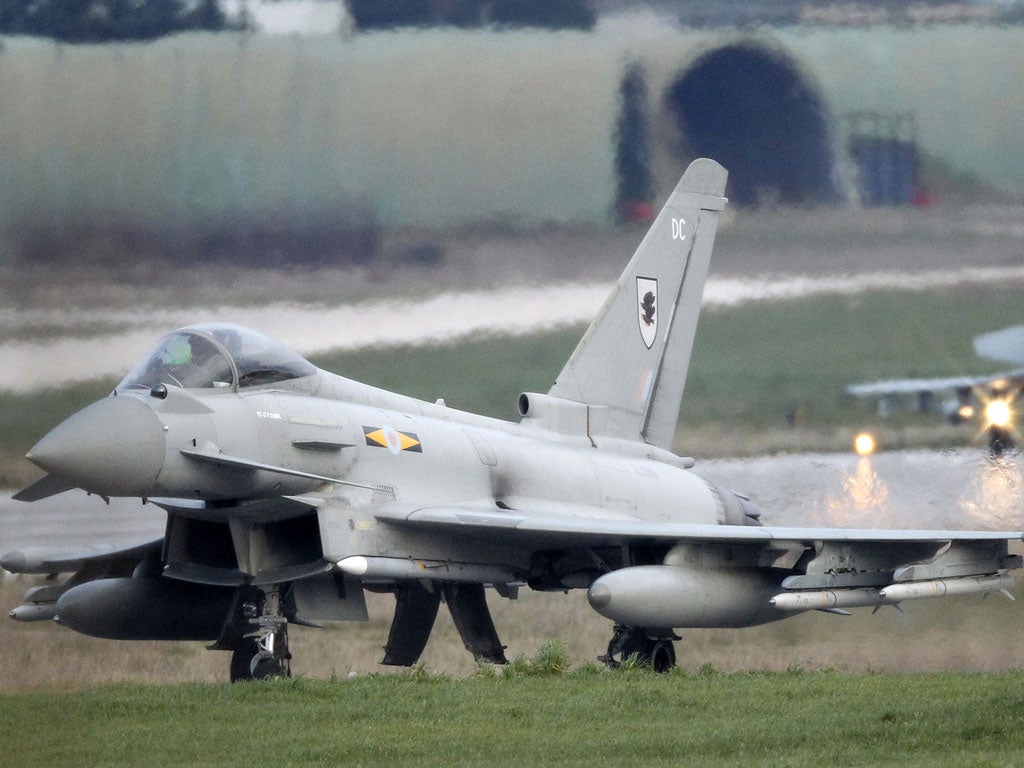Britain meets Gulf allies over growing tensions in Iran
Saudi Arabia and the UAE fear there may be attempts to block a vital oil supply route

Your support helps us to tell the story
From reproductive rights to climate change to Big Tech, The Independent is on the ground when the story is developing. Whether it's investigating the financials of Elon Musk's pro-Trump PAC or producing our latest documentary, 'The A Word', which shines a light on the American women fighting for reproductive rights, we know how important it is to parse out the facts from the messaging.
At such a critical moment in US history, we need reporters on the ground. Your donation allows us to keep sending journalists to speak to both sides of the story.
The Independent is trusted by Americans across the entire political spectrum. And unlike many other quality news outlets, we choose not to lock Americans out of our reporting and analysis with paywalls. We believe quality journalism should be available to everyone, paid for by those who can afford it.
Your support makes all the difference.The Government is expected to hold discussions with senior officials in the Gulf region about the threat posed by Iran to Middle Eastern oil supplies.
Leaders in Saudi Arabia and the United Arab Emirates are increasingly concerned in case there are attempts by the Iranians to block the Strait of Hormuz, the waterway through which 40 per cent of the world's oil supplies are shipped.
Britain already has mine-sweeping Royal Navy vessels in the Gulf region, and The Independent revealed yesterday that Prime Minister David Cameron is considering stationing warplanes in the Persian Gulf amid rising tension in the region.
It is understood that the Government is keen to reassure its Gulf allies that they would have Britain's full diplomatic and military backing should tensions with Iran escalate further.
The Prime Minister's official spokesman said yesterday that any deployment of UK Eurofighter Typhoons to a base in Abu Dhabi would be purely for training purposes. "There are routine deployments that have been going on for many years," he said. "I don't think there is anything new in that."
But the arrival of British aircraft is bound to fuel the Iranian sense of insecurity even if there are assurances that the move is not aimed at them. The Defence Secretary, Philip Hammond, said yesterday that European nations must be prepared to "take a bigger role in relation to North Africa and the Middle East".
Israel, whose Defence Minister Ehud Barak is in London at the moment with the Iran crisis the main topic of discussion, is said to be "fully aware" of the discussions over the warplanes.
The UK has carried out two air exercises with the UAE, one codenamed Al Khanjar in 2010, involving Eurofighter Typhoons, and another one this year, with Tornado GR4s. The Tornados are, however, being phased out by 2019 and BAE Systems has stated that the UAE has "genuine" interest in buying 60 of its Typhoons in preference to the French Dassault Rafale.
Tehran has been bitterly critical about the American and French presence in the Gulf, saying it is an attempt to intimidate and that it poses a threat to Iran's national interests.
Mr Barak said in London this week that Iran appears to have pulled back from proceeding apace to acquire nuclear weapons. But he reiterated Israel's determination to carry out a military strike if it felt this was necessary.
The Ministry of Defence said in a statement: "The UK regularly deploys Typhoons to UAE as part of our routine exercise programme and to demonstrate our military commitment to UAE and the security of the region. We have a mutual interest with our GCC [Gulf] partners in ensuring peace and stability in the region."
The MoD added: "These deployments are not due to our concerns over Iran's nuclear programme. As we continue to make clear, the Government does not believe military action against Iran is the right course of action at this time"
The British Government has urged Israel to exercise restraint over Iran, pointing out that sanctions are having a crippling effect on the Iranian economy – with the fallout from the punitive measures making the government of Mahmoud Ahmadinejad increasingly unpopular.
Join our commenting forum
Join thought-provoking conversations, follow other Independent readers and see their replies
Comments